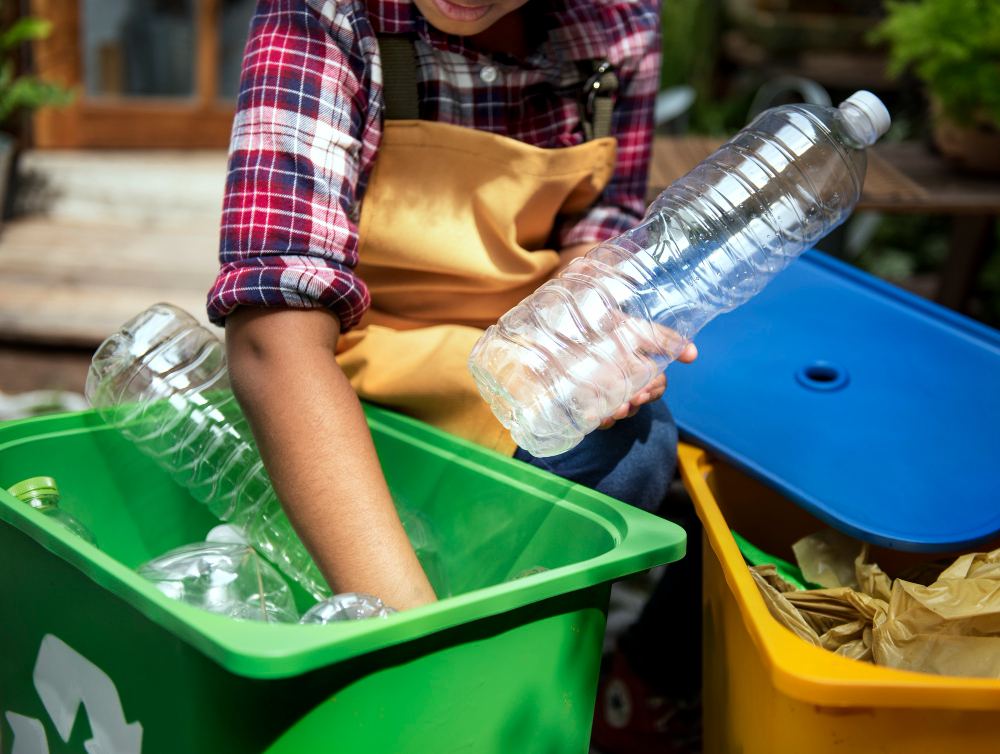Waste management is a critical issue that affects our environment and communities. However, there are several misconceptions surrounding this topic that often hinder our efforts to effectively manage waste. In this section, we will debunk five common misconceptions about waste management and shed light on the importance of proper disposal, recycling, and reducing waste.
Why knowing the facts about waste management is so important
Waste management is a crucial aspect of our lives that can easily go unnoticed. It is all too easy to throw things away and forget about them, but the impact of waste on the environment and our health is far too important to ignore. That is why it is essential to understand the facts about waste management.
Knowing the facts about waste management helps us to make informed decisions. For example, we can learn about the different types of waste and how to dispose of them properly. This knowledge will enable us to make more sustainable choices and reduce our impact on the environment. One study found that ‘Reducing waste will not only protect the environment but will also save on costs or reduce expenses for disposal’, By knowing all of the facts about waste management, we can all work towards a greener and healthier planet
By learning about waste management, we can become more aware of the impact of our actions and take steps to make a positive difference. Whether it is through reducing our waste, recycling, or supporting initiatives that promote sustainable waste management, we can all contribute to a healthier and cleaner planet.
It doesn’t matter if you put the wrong things in your recycling bin
The truth is, putting the wrong items into the recycling bin can cause significant issues in the recycling process. Recycling facilities rely on a carefully designed system to sort and process recyclable materials efficiently. When non-recyclable items are incorrectly placed in the recycling bin, it can contaminate the entire batch, making it difficult to separate and recover the valuable recyclables.
Items such as plastic bags, food waste, clothing, and other non-recyclable materials are often among the most common contaminants found in recycling bins. These contaminants not only slow down the sorting process, but they can also damage the machines used to sort and process recyclables. This leads to increased costs for recycling facilities, as repairs and maintenance need to be implemented more frequently.
Moreover, contaminated batches of recyclables are often rejected by recycling facilities and end up being sent to landfill instead. This defeats the purpose of recycling and wastes the effort put into separating materials in the first place. Not only does this result in additional environmental damage, but it also wastes valuable resources that could have been reused or repurposed.
One person won’t make a difference
It’s a common misconception that one person managing their waste won’t make a difference. In reality, every bit counts. By properly disposing of waste, reducing consumption, and recycling whenever possible, individuals can make a significant impact on the environment. Encouraging others to follow suit can amplify that impact even further. Remember, change starts with small steps, and taking responsibility for our waste is a great place to start.
In fact, one study found that ‘Recycling only one aluminium can save enough energy to power a television for 3 hours!’ When it comes down to it, the reason why this statement is wrong is because of how easily this mentality can spread from one to three, from three to more and so on.
One person taking the time out to recycle or manage their waste can make a massive difference.
Your general waste all ends up in the landfill.
It’s a common misconception that all of our general waste ends up in the landfill. But the truth is, there’s a lot more to waste management than just dumping everything into a giant hole in the ground. In fact, most modern cities have implemented various strategies to minimise the amount of waste that ends up in landfills and to promote recycling and sustainable practices. One study found that ‘Landfilling of waste has decreased from 94 percent of the amount generated in 1960 to 50 percent of the amount generated in 2018.’
Waste management is a multi-step process, and landfilling is just one aspect of it. The process typically begins with waste reduction and source separation. This means encouraging individuals and businesses to reduce their waste generation and separate recyclable materials from non-recyclable ones.
it goes through different treatment methods depending on its composition. Organic waste, such as food scraps and yard trimmings, can be composted to create nutrient-rich soil amendments. This process diverts organic waste from landfills, where it would produce harmful greenhouse gases as it decomposes.
Recyclable materials like paper, plastics, glass, and metals are sent to recycling facilities. These materials are sorted, cleaned, and processed so that they can be turned into new products. Recycling not only reduces the amount of waste sent to landfills but also conserves natural resources and reduces energy consumption.
Landfills solve all our waste problems
When it comes to waste management, landfills have long been seen as the ultimate solution. Simply dump our garbage into a large hole in the ground, cover it up, and voila – all our waste problems are solved, right? Unfortunately, this is a common misconception that fails to consider the long-term environmental and health impacts of landfills.
Over time, the waste in landfills can leach harmful chemicals into the soil and groundwater, contaminating local ecosystems. This poses a significant risk to human and environmental health, as toxic substances can enter the food chain and cause long-term harm to plants, animals, and humans who rely on these resources.
Instead of sending waste to landfills, there is a significant opportunity to reduce, reuse, and recycle materials. By promoting a circular economy, where materials are kept in use for as long as possible, we can minimise the amount of waste that ends up in landfills
Waste needs to be sorted
Recycling involves taking materials from waste and transforming them into new products. In order for recycling to be successful, different types of waste, such as paper, plastic, glass, and metal, need to be separated so that they can be processed individually. This has led to the common practice of sorting waste into different bins or containers.

However, recent advancements in waste management technology have made sorting waste less necessary. Waste management facilities now have the capability to sort and process waste automatically using advanced sorting systems and machinery. This means that waste can be sent to a facility without the need for prior sorting.
Final thoughts
Waste management is a pivotal issue that resonates deeply with our environment and communities. However, misconceptions have often hindered our collective efforts to effectively address this critical matter. With the right information, we can make conscious choices that positively influence the world around us. From recycling to reducing waste!





